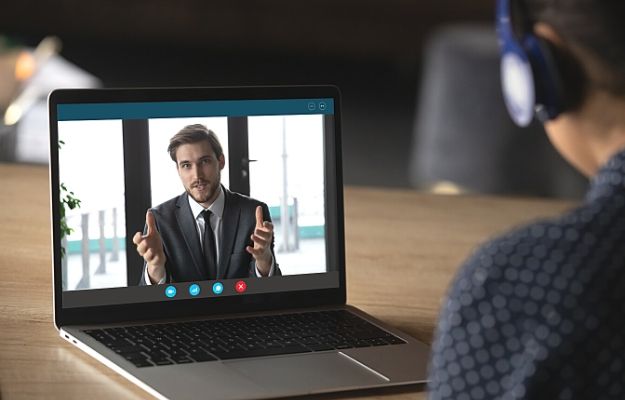14 Skills Sales Development Representative Have Mastered
The difference between a good and great sales development rep (SDR) is the skills they grasp. In this article, we discuss 14 SDR skills that have been mastered to fill the pipeline and ultimately make more revenue.
In this article:
Productivity Tools
- Know Who to Target
- Identify Good Customers
- Attention to Detail
- Communication
- Phone Calls
- Questioning Ability
- Listening Skills
- Customization
- Product Expert
- Process Driven
- Tech Savvy
- Social Media
- Coachable and Keen to Learn
RELATED: WHAT 3 TOP SDR LEADERS ARE DOING RIGHT NOW
Essential SDR Skills
A Sales Development Representative, or SDR, is one of the primary roles within a sales and marketing team. They are inside reps who are focussed more on inbound lead qualification and channeling those leads into qualified appointments.
This vital sales role is not for everyone, and good SDRs need to stay ahead of the game, and on top of the minds of the prospects and clients they work with. SDRs have to master specific SDR skills that play an essential job within a healthy sales procedure.
Know Who to Target
The decision-maker isn’t always the target, and SDRs should be skilled to know whom to target within an organization. Influencers, direct and indirect, often help SDRs get the appointment booked, and regular conversations with various prospects within an organization are likely to become a primary prospect.
Identify Good Customers

An SDR should be able to notice any ‘defects’ and determine if a given (or found) lead is fit for the product being sold. While there are plenty of systems that automate this process using AI technology, an SDR should integrate their own skills with sales outreach tools.
Attention to Detail
In a hectic environment, there is a fair amount that can go wrong when writing and sending emails, such as duplication, incorrect, or out of date information.
SDRs must be able to master their CRM system and check all information is correct and fix things when they go wrong.
Communication
An SDRs job is to have conversations with the right people by reaching out and starting conversations with leads. These early stages of the sales process are crucial to finding out if the prospect can be processed through the ‘sales pipeline’ to a sales closer.
Email outreach skills must be excellent to succeed as an SDR since sending cold or warm emails is a primary function. Sending emails must be met with a good amount of responses from leads and second stage prospects. SDRs should be able to mix up their copywriting styles and make emails personalized, punchy, relevant, and accurate.
Phone Calls
Calls should be perfected to qualify leads and find out data of target accounts. Calls should be made quickly but efficiently to get the highest number of conversions while providing the best customer service. SDRs should know how to get the right person on the phone, talk about needs/solutions, and be able to ask people the right questions. The best SDRs will earn good commission from sales qualified appointments or SQAs.
Questioning Ability
Good SDRs will be able to ask questions that are out of the comfort zone of many. They can push customers to the limit without being too ‘salesy’ by asking the right questions. Being able to understand an organization’s goal through questioning is a master skill.
Listening Skills

Selling is not so much about talking, but actually about active listening. Good SDRs ask fantastic questions then listen to their customers’ responses to gain more insight and determine customer needs. The conversation should be weighted, so the customer talks freely with the SDR, only interjecting to point out product value.
Customization
To get good response rates, SDRs must master the skill of customizing each contact they make with prospects and customers. It’s not enough anymore to send out a standardized email or read from a script. Although quantity matters, relevant quality contact catches the eye of the prospect to win appointments.
Product Expert
An SDR should be prepared for any question from a client and live and breathe the organization’s product or products. If they don’t believe in the product or have limited knowledge, then it will be more difficult to prospect or be confident explaining things.
Process Driven
Sales development is a repetitive process, and reps can spend their days doing the same functions. Having a killer process and strategy is essential to increase efficiency and remove wasted or monotonous steps from the sales cycle. Many CRMs and other AI tools can support an SDR in their role, but these tools still need to be properly understood and utilized to the max.
Tech Savvy
Much of the process within sales can be automated, and SDRs have to be technologically savvy and continually learning new tech. SDRs spend hours on importing lists, calling, emailing, and booking demos. Some SDRs do much more and follow the sales process until a sale is made. All steps use sales and CRM software.
Social Media

Social media is a vital tool in the B2B world, and SDRs need to know how to navigate and become an expert on sites like LinkedIn, Twitter, Instagram, and Facebook. They will need to set themselves up as experts in their field or industry leaders and convey their knowledge. All information posted should be highly valuable and relevant to interact with more prospects and build rapport.
Coachable and Keen to Learn
A good SDR should be open to continuously improving their performance, listening to their peers for suggestions, and implementing new strategies. Sales is an ever-evolving process, and so it makes sense to adapt and change with ever-evolving models or systems. An excellent SDR will seek out feedback, learn new skills, and proactively better themselves through training opportunities or online tutorials, for example.
What other SDR skills can you share with us? Please comment in the section below.
Up Next:
- 10 GOOD HABITS OF A NATURAL SALESPERSON FOR YOUR BUSINESS
- WHY EMAIL MARKETING IS AN IMPORTANT PART OF YOUR SALES PROCESS
- 3 STEPS TO BUILD A GREAT SALES TEAM
